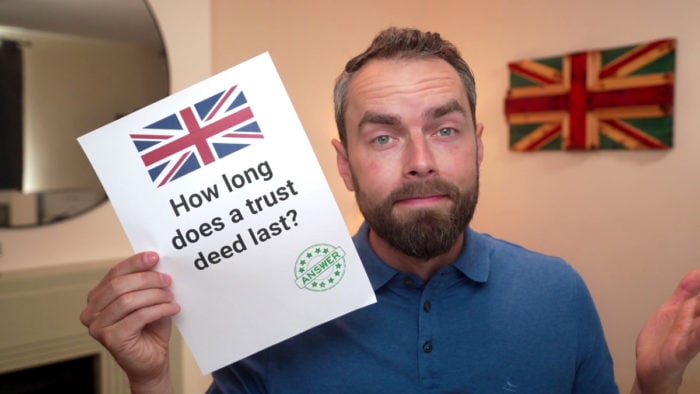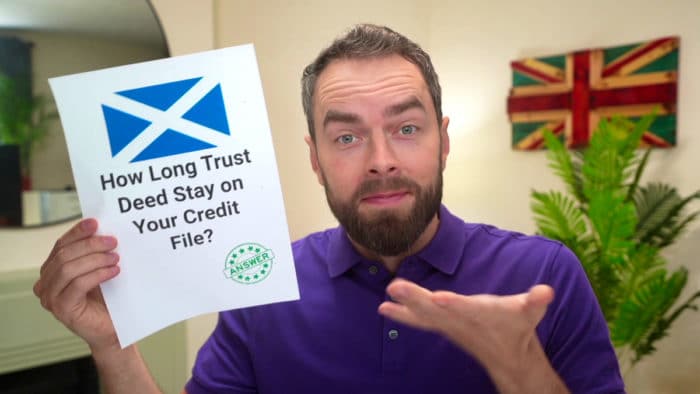Typical Trust Deed Durations and What Can Change It
For free & impartial money advice you can visit MoneyHelper. We work with The Debt Advice Service who provide information about your options. This isn’t a full fact-find, some debt solutions may not be suitable in all circumstances, ongoing fees might apply & your credit rating may be affected.

For free & impartial money advice you can visit MoneyHelper. We work with The Debt Advice Service who provide information about your options. This isn’t a full fact-find, some debt solutions may not be suitable in all circumstances, ongoing fees might apply & your credit rating may be affected.
Are you searching for answers on how long a trust deed lasts? You’re in the right place.
We know you might be worried about debt and how a trust deed could affect you. Every month, over 170,000 people visit our website seeking advice on debt solutions, so you’re not alone.
Here’s what you’ll learn in this easy-to-read article:
- What a trust deed is
- How a trust deed works
- How long a trust deed stays around for
- What happens when your trust deed ends
- How to make your credit better after a trust deed
We know what it’s like to face tough money choices. Don’t worry, we’ve got lots of experience with money matters, and we’re here to help you understand your options.
How long does a trust deed last?
A trust deed, in general, is meant to last around four years. This means that you won’t be listed on the register of insolvencies any longer once it is no longer active.
However, there are exceptions to the rules.
When can a trust deed last more or less than four years?
- When your income decreases rapidly/suddenly.
Your trust deed can take more than four years to complete if your income fluctuates regularly and you suffer an immediate decrease in your income.
If the decrease is so prominent that you cannot afford to make payments on your trust deed for a while, you could take a break from making these payments.
This would mean that the total duration of your trust deed would go beyond four years, and you’ll be listed on the register of insolvencies for some time after your trust deed was originally expected to end.
- When your income suddenly increases significantly.
When you enjoy a spontaneous rise in your income levels, you could be expected to contribute more towards your trust deed each month than you currently do.
Since you’re paying more towards these instalments, it’s highly likely that you’ll be done with your trust deed before its actual expiry date.
- When you happen upon a large sum of money.
If you suddenly happen upon a very large sum of money during your trust deed, you could be able to pay your debts back as a lump sum.
If you’re able to pay your debt back in full, you definitely should. It will only be written off if you can’t afford to pay it for as long as the length of your trust deed.
How a debt solution could help
Some debt solutions can:
- Stop nasty calls from creditors
- Freeze interest and charges
- Reduce your monthly payments
A few debt solutions can even result in writing off some of your debt.
Here’s an example:
Situation
| Monthly income | £2,504 |
| Monthly expenses | £2,345 |
| Total debt | £32,049 |
Monthly debt repayments
| Before | £587 |
| After | £158 |
£429 reduction in monthly payments
If you want to learn what debt solutions are available to you, click the button below to get started.
What types of debt does a trust deed apply to?
A trust deed only applies to debts that are unsecured. In other words, if your debts are not secured against some form of collateral, then you can apply for a trust deed.
This means that you can apply to get a trust deed for your loan if your debt is made up of:
- Personal loans,
- Credit card loans,
- Overdrafts.
- Other unsecured loans.
This, of course, is a legally binding venture. It does not cover debts that are secured against your property or other assets, such as a mortgage loan.
Therefore, if you’re aiming to get a trust deed, you can apply for one through an Insolvency Practitioner.
» TAKE ACTION NOW: Fill out the short debt form
What is the Insolvency Practioner’s role in a Trust Deed?
The role of the insolvency practitioner will be to act as a trustee. A trustee in this regard is a third party that is responsible for dealing with creditors on your behalf.
Just like it seems, trust deeds require the existence and involvement of a trustee, particularly because of the need to negotiate and communicate with creditors.
The trustee will be responsible for a lot of what happens during the course of the arrangement. You should stay in contact with the trustee, and keep them updated about your credit file.
Thousands have already tackled their debt
Every day our partners, The Debt Advice Service, help people find out whether they can lower their repayments and finally tackle or write off some of their debt.

Natasha
I’d recommend this firm to anyone struggling with debt – my mind has been put to rest, all is getting sorted.
Reviews shown are for The Debt Advice Service.


